Essential BBQ Equipment: Must-Have Tools for Every Griller
A great barbecue isn’t just about the meat — the right equipment makes all the difference. Whether you’re a weekend griller or an aspiring pitmaster, this guide walks you through the essential gear, safety items, and pro accessories that will level up your cookouts.

Grills — The Heart of Every BBQ
Charcoal Grills — Flavor & Tradition
Charcoal grills deliver classic smoky flavor and high, direct heat for searing. They require more hands-on temperature control but are preferred by many purists for the taste they produce.
Gas Grills — Convenience & Speed
Gas grills are fast to start and easy to control with knobs. They’re ideal for weeknight grilling and cooks who want consistent results with minimal fuss.
Pellet Grills — Consistency & Technology
Pellet grills combine convenience with real wood smoke. They’re great for low-and-slow smoking and offer digital temperature control for consistent long cooks.
Portable Grills — BBQ on the Go
Portable charcoal or gas grills are perfect for camping, tailgating, and small space living. They trade capacity for portability but still turn out great meals.

Essential BBQ Tools & Accessories
Tongs & Spatulas
Long-handled stainless steel tongs and a wide spatula let you flip and move food without piercing it — preserving juices and safety. Look for tools at least 16–20 inches long with comfortable grips.
Grill Brush & Scraper
A sturdy grill brush (brass or stainless bristles or wire-free designs) and a scraper keep grates clean. Clean grates prevent sticking and flare-ups and improve sear marks.
Meat Thermometer
Accurate doneness is non-negotiable. Use an instant-read thermometer for quick checks and a probe thermometer for long smokes. Digital models with alarm functions are very helpful for low-and-slow cooking.
Knives & Cutting Boards
A sharp chef’s knife for trimming and a narrow boning or slicing knife for finished cuts are essential. Use separate cutting boards for raw meat and vegetables to avoid cross-contamination.
Other Handy Items
- Kitchen twine and butcher paper
- Disposable gloves and sanitizing wipes
- Heatproof basting brushes and spray bottles
Smoking & Flavor-Enhancing Gear
Wood Chips, Chunks & Pellets
Choose wood to match your protein: oak and hickory for beef, apple and pecan for pork and poultry. Chips give quick smoke; chunks and pellets burn longer.
Charcoal Chimney Starter
A chimney starter lights charcoal evenly without lighter fluid, producing clean heat for the best flavor.
Smoke Boxes & Water Pans
Use a smoke box on a gas grill or a water pan in a smoker to control smoke generation and humidity for long cooks.
Marinade Injectors & Basting Tools
Injectors force flavor inside large cuts, and good basting brushes (silicone or natural bristle) help apply sauces and glazes without wasting product.
Heat Control & Safety Equipment
Grill Gloves & Aprons
Heat-resistant gloves protect hands and forearms during high-heat sears and while handling hot racks. A sturdy apron keeps clothes safe from splatters.
Thermometers for Grill/Smoker
Monitor grill chamber temperature with a dedicated grill thermometer in addition to meat probes to maintain steady cooking conditions.
Fire Extinguisher & Safety Essentials
Keep a Class B or multi-purpose fire extinguisher nearby, along with a metal ash bucket for safe disposal of coals. Never leave active flames unattended.
Heat-Resistant Mats & Ash Tools
Use a heatproof mat under the grill to protect decks and a proper ash removal tool or scoop for safe cleanup.
Extra Gear for Serious Grillers
These accessories aren’t required for every cookout, but they elevate what you can do on the grill.
- Rotisserie kits — perfect for whole chickens and roasts.
- Rib racks & skewer sets — increase capacity and consistency.
- Cast iron skillets — excellent for searing and finishing sides on the grill.
- Pizza stones — turn your grill into a pizza oven.
- BBQ baskets — grill delicate items like shrimp and vegetables without falling through the grates.
Must-Have BBQ Equipment Checklist
Use this quick table to build or audit your BBQ kit.
| Equipment | Why You Need It | Recommended Use |
|---|---|---|
| Grill (charcoal, gas, or pellet) | Primary cooking platform | Choose by flavor preference & convenience |
| Long-handled tongs & spatula | Safe, damage-free handling | Flip meats without piercing |
| Digital meat thermometer | Cook to safe, ideal doneness | Instant-read for steaks, probe for roasts |
| Chimney starter | Light charcoal cleanly | Start coals without lighter fluid |
| Wood chips/chunks/pellets | Smoke flavor | Match wood to meat (apple, oak, hickory) |
| Grill brush & scraper | Maintain clean grates | After preheat & post-cook |
| Heat-resistant gloves | Protect hands/arms | During searing & rack handling |
| Fire extinguisher & ash bucket | Safety and cleanup | Keep close to the grill |
Where to Buy BBQ Gear
You can find quality BBQ equipment at many retailers. Here are reliable options by category:
- Online marketplaces: Amazon, BBQ supply specialists (search for verified sellers and reviews).
- Specialty BBQ stores: Local shops often stock premium accessories and offer expert advice.
- Big-box retailers: Home Depot, Lowe’s, Walmart — good for grills, tools, and blanks.
- Secondhand/Local listings: Check local marketplaces for well-maintained used grills and smokers.
FAQs
What grill should a beginner buy?
For beginners, a reliable mid-sized gas grill is a good start for convenience. If you want classic flavor, a charcoal kettle (e.g., Weber) is an excellent learning platform. Choose based on how much hands-on cooking you want to do.
Do I need a probe thermometer for smoking?
A probe thermometer is highly recommended for long, low-and-slow cooks because it lets you monitor internal meat temperature without opening the smoker frequently.
How do I safely dispose of charcoal ash?
Wait until ash is fully cool, then place it in a metal ash bucket. Never dispose of hot ash in plastic or paper containers. For safety, keep the ash bucket away from flammable materials.
Which wood should I use for pork vs beef?
Use fruitwoods like apple or cherry for pork and poultry; oak or hickory pairs well with beef. Lighter woods impart milder smoke than heavier woods such as mesquite.
Final Thoughts
Investing in the right BBQ equipment improves your results, safety, and enjoyment. Start with the essentials — a reliable grill, quality tongs/spatula, and a good thermometer — then add specialty gear as you grow your skills. With the right tools, every cookout becomes an opportunity to learn and serve better food.
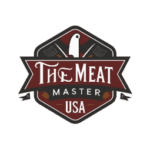
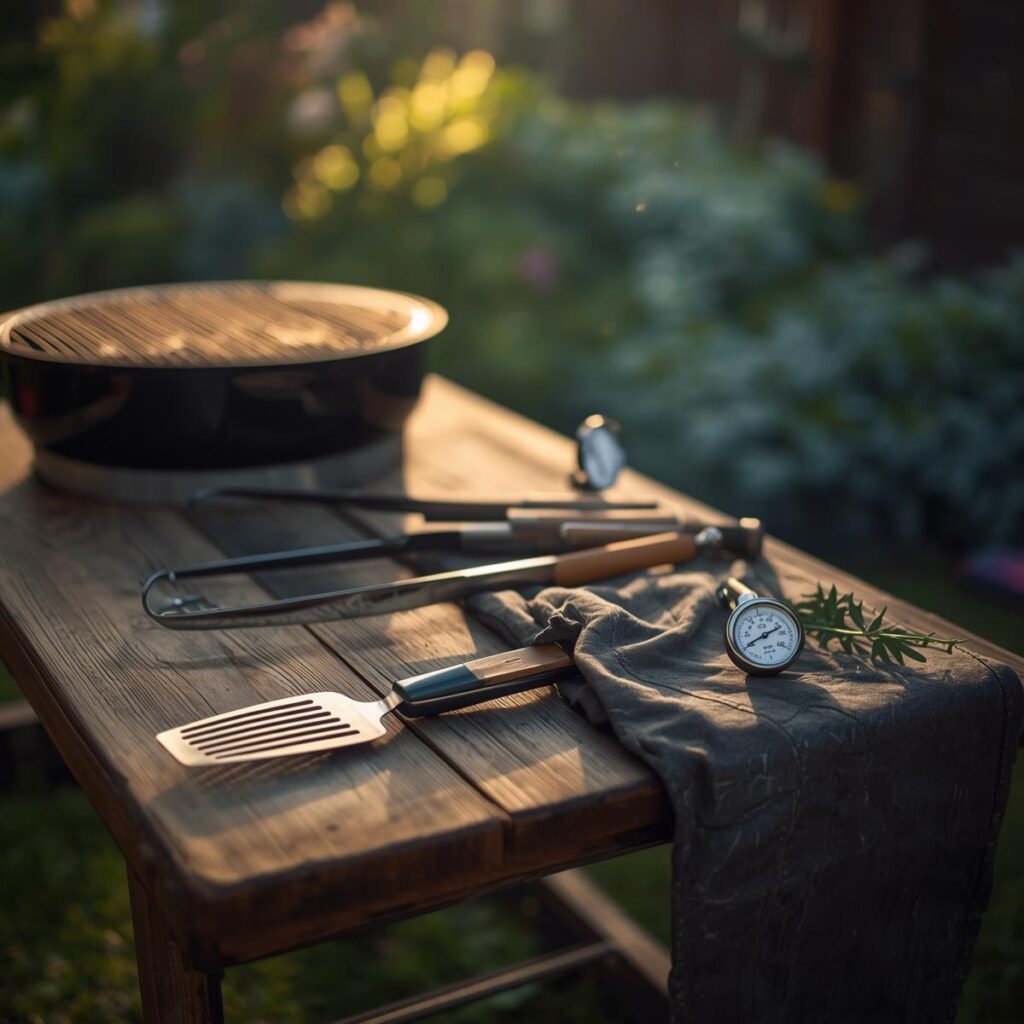

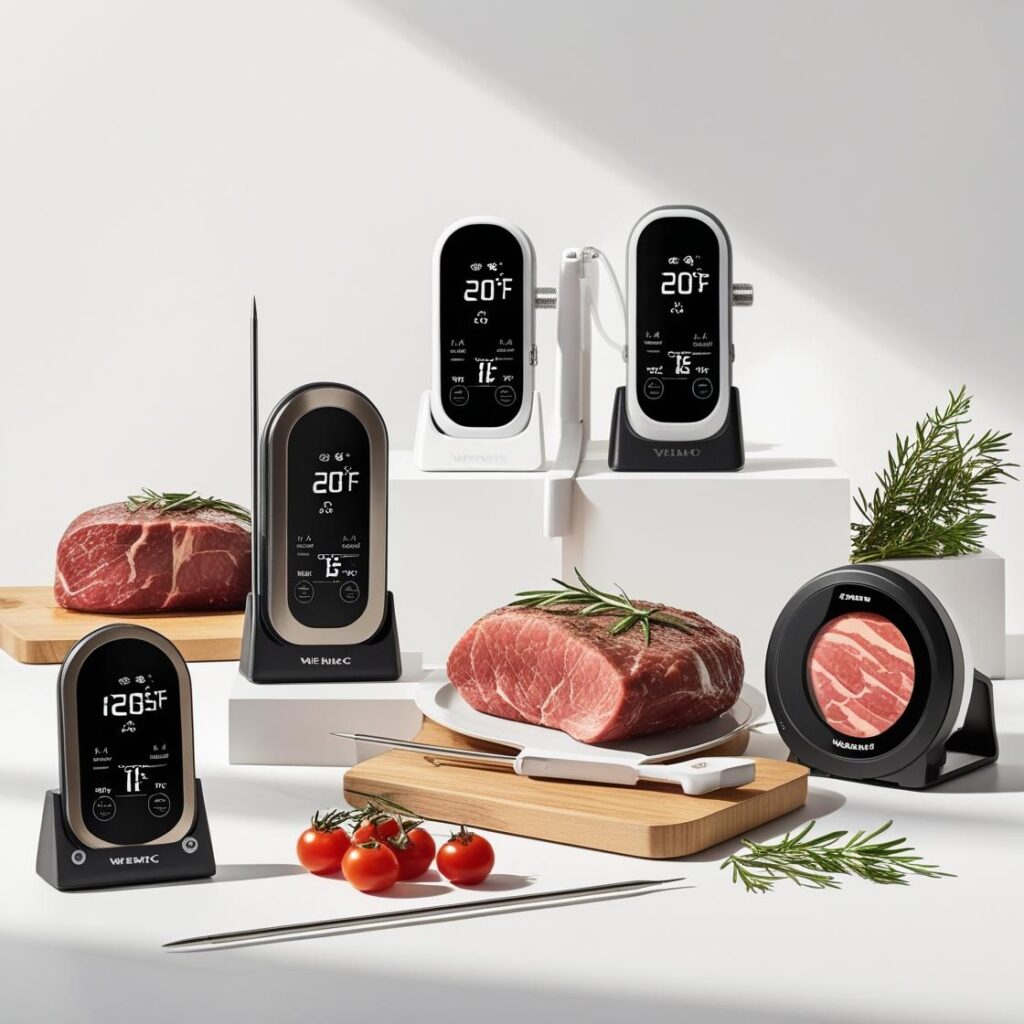
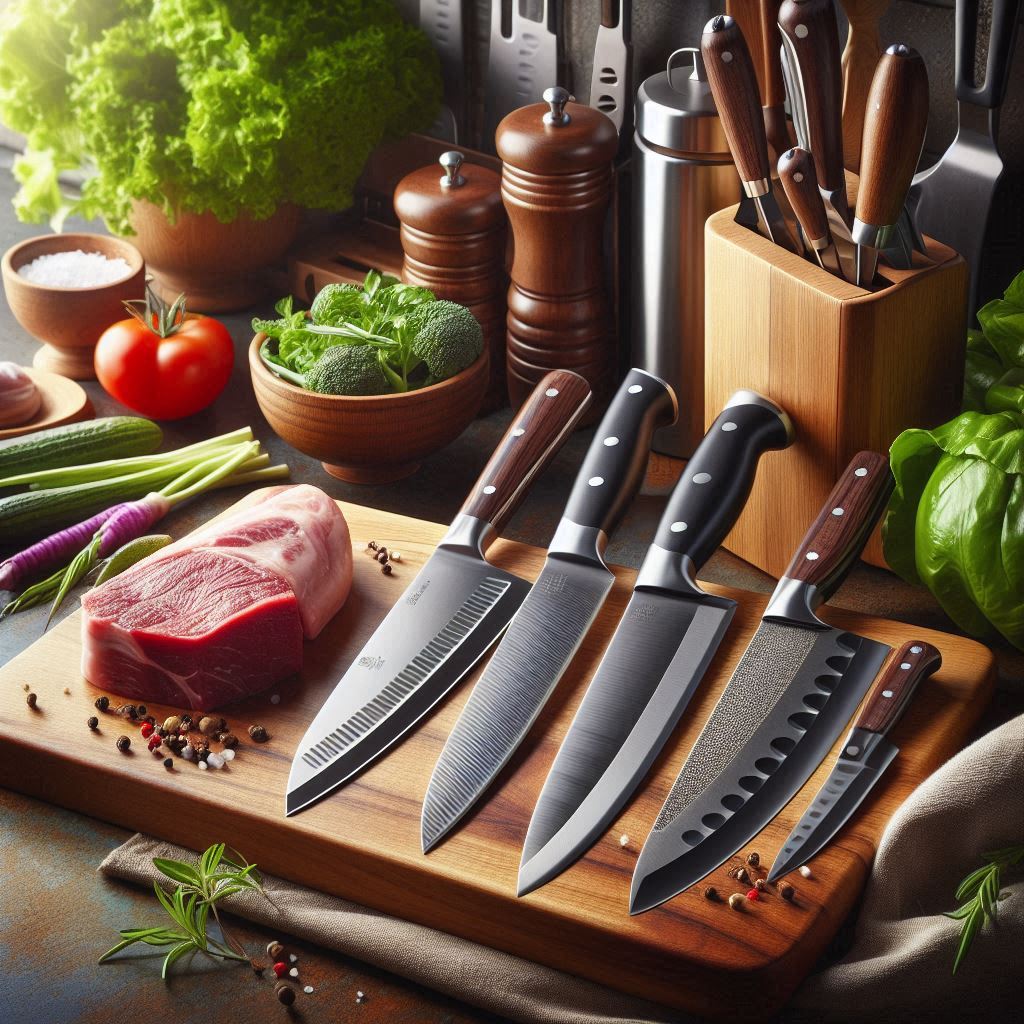
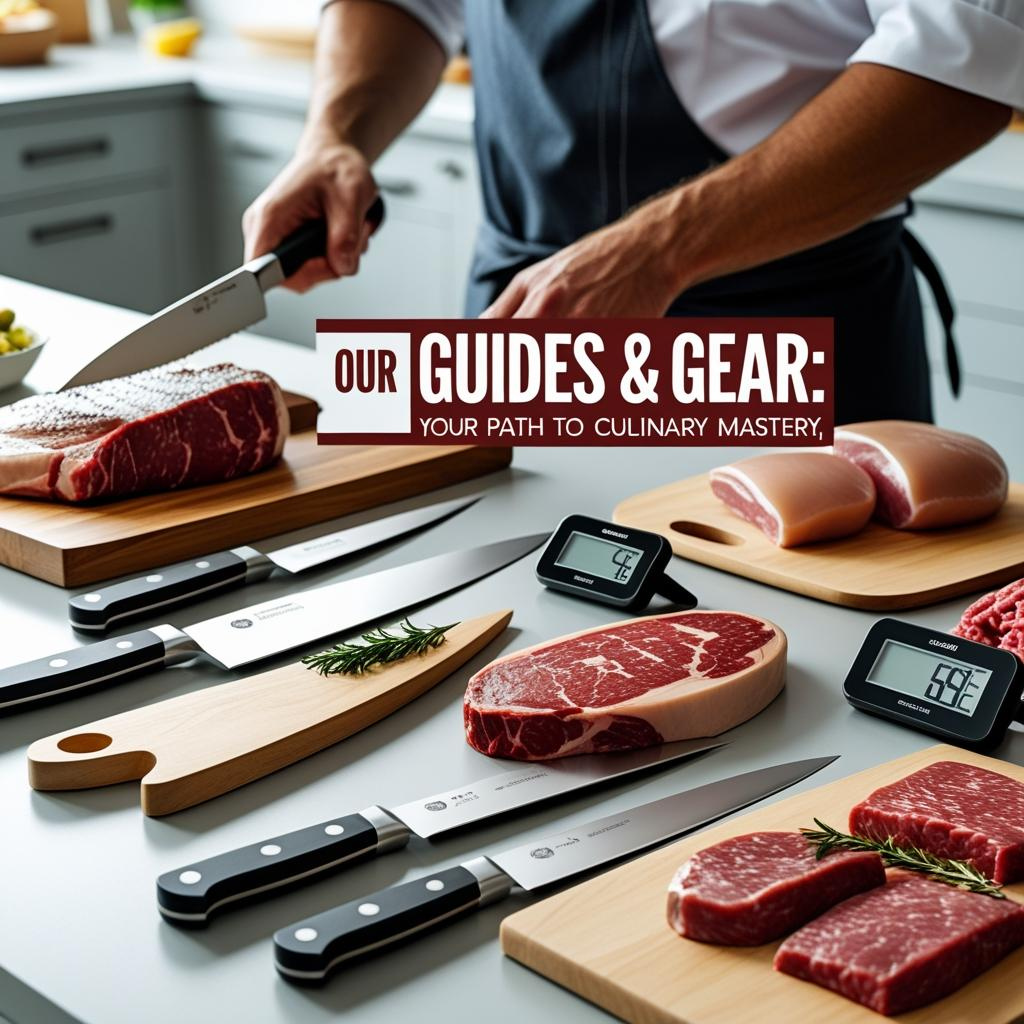
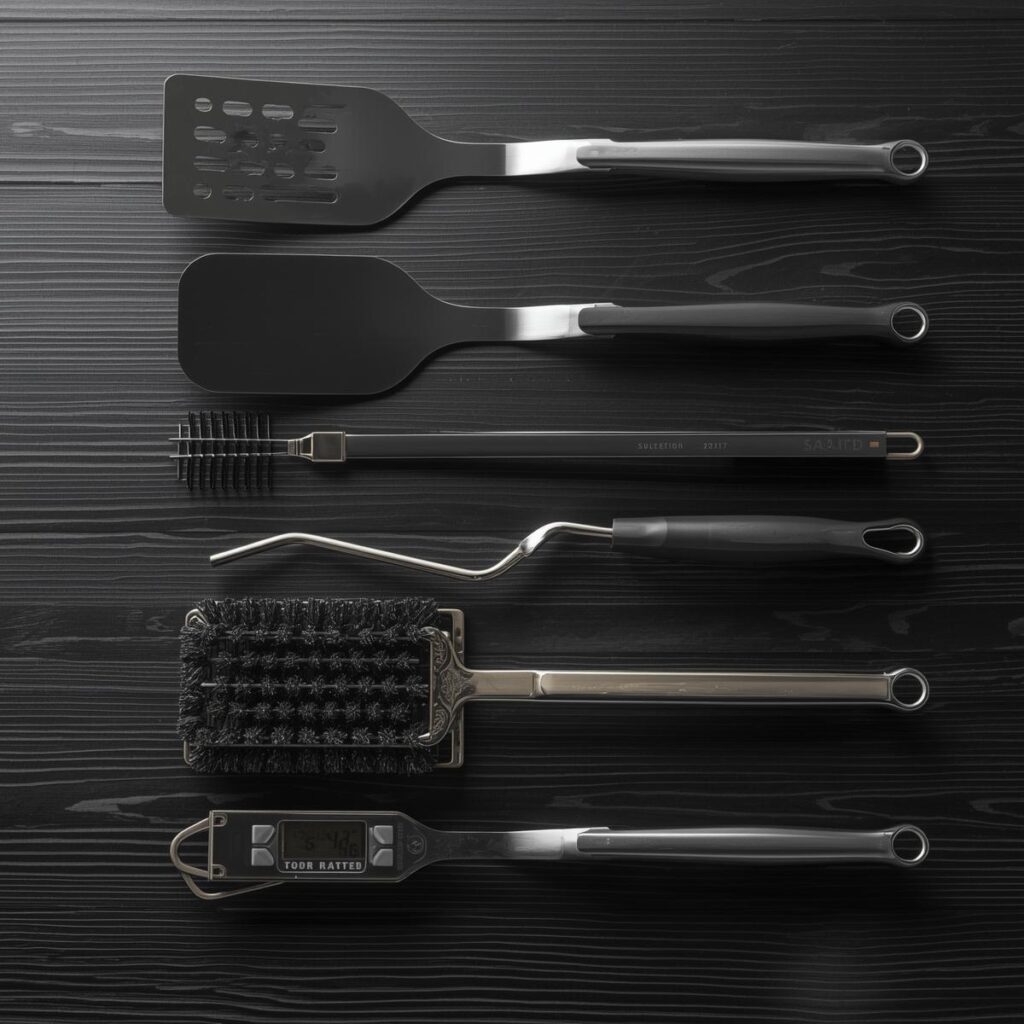
Pingback: Whole-Hog BBQ Techniques (Carolina) - The Meat Master USA